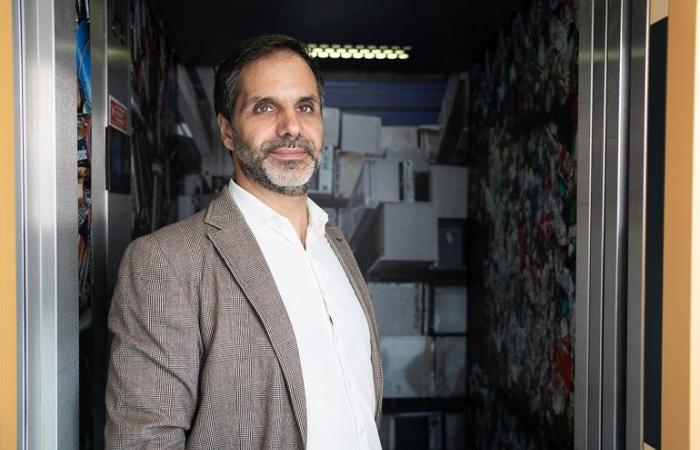
Electrão’s CEO, Pedro Nazareth, in an interview with Ambiente Magazine, outlines the organization’s main priorities for the coming years and takes stock of the system’s 20 years of existence, highlighting that Electrão’s mission is to “collect, reuse and recycle more it is better”. Don’t miss the 2nd part of this Great Interview.
What is the status of the transposition of the single-use plastics directive?
The transposition of Directive 2019/904 on single-use plastics was complete and is published in Decree-Law No. 83/2022 of 9 December. Companies producing tobacco products, covered by the first extended producer responsibility system, provided for in these diplomas, delivered the respective Specifications three months later, in March 2023. The granting of a license is currently awaited. for the management of this integrated system and the start of the activity.
Are production companies ready for the new responsibilities that this directive brings? How did they have to prepare?
Shortly after the publication of the Directive, producing companies began a process of learning and deepening their knowledge regarding the end-of-life management system for single-use plastics in their products. They followed and participated in the development of different methodological approaches relating to the characterization of this system, with particular focus on waste disposal behaviors and urban cleaning activities.
This learning process allowed national producing companies to subsequently conduct a similar study, adapted to the national reality, the results of which were publicly presented last year at the annual meeting of the Urban Cleaning Association, which was a central partner in this entire process. We believe that it was the most in-depth technical and economic study on these matters to date carried out in Portugal. These results were also shared with the Administration, with the National Association of Portuguese Municipalities and the National Association of Parishes and constitute, as is logical, the basis of the Tender Specifications delivered.
As usual in the implementation of extended producer responsibility, the end-of-life system for the respective products has acquired recent relevance but, based on the path described, I would say that national producing companies are quite well prepared to assume their responsibilities.
What has Electrão done to support these companies?
Electrão was, from the outset, the platform that promoted the meeting of the main national producing companies, the vast majority of them Electrão customers, in other integrated systems, which helped them understand their obligations and introduced them to the waste management and waste management sector. end-of-life management of single-use plastics.
Electrão was also the project manager that made it possible to characterize disposal behaviors, urban cleaning activities and the respective waste streams, with particular emphasis on single-use plastics.
We assume our vocation as a specialist in waste management, multi-flow waste management and application of the principle of extended producer responsibility to propose to producing companies an end-of-life management system for single-use plastics that ensures greater balance , a greater commitment between environmental objectives and the respective economic impact. This proposal is discussed and adjusted with the companies in conjunction with their “headquarters” and which ends up being the matrix of the Specifications.
What will the country gain from this new directive and when will it be able to start reaping the benefits?
The purpose of the Directive is to prevent the impact of end-of-life single-use plastic products on the environment and in particular on the marine environment, a challenge that now calls on producing companies to take part.
The new management entity will have Portuguese municipalities as its main partners, with whom it will collaborate to promote the adequacy of resources for the good performance of urban cleaning activities. It is also expected that the environmental education and awareness components will be reinforced to prevent and change inappropriate waste disposal behaviors on public roads or in the natural environment by the population. These two activities will be central to this new entity and to ensuring that our country has cleaner cities and beaches and a natural environment preserved from the impact of inappropriate disposal of these plastics.
We have a strong expectation of having the license granted by the end of 2023 and that the beginning of 2024 could correspond to the beginning of the activity of this management entity.
With this directive, is Portugal closer to reality at European level in this area?
Portugal led the process of developing and designing the integrated single-use plastics management system and was part of the group of countries that was most advanced in these matters. There is now a risk that production companies will find themselves unable to comply with their legal obligations if the license to start the activity is delayed.
Is Portugal recycling more or less today than before the pandemic?
Portugal has not yet recovered pre-pandemic recycling and preparation for reuse values, which were the best performing results in urban waste ever recorded. Last year, in 2022, this rate was 33%, which reflects the long way to go in order to meet the goals set out in community directives that point to the ambitious objectives of preparing for reuse and recycling of 55% in 2025, 60% in 2030 and 65% in 2035.
The recycling of urban waste is highly dependent on the country’s ability to separate and recycle some specific families of waste that make up urban waste and the extended responsibility of the producer can make a very important contribution. In addition to the contribution that necessarily has to come from biowaste, the country can only hope to meet its urban waste recycling targets if the flow of packaging significantly increases the recycling rate.
Portugal has been investing in recycling for more than two decades, but the results continue to fall short of expectations and technology still cannot solve everything. Citizens and companies must be active participants when it comes to separating and sending for recycling and Electrão seeks to mobilize the Portuguese towards the challenge of recycling through the promotion of numerous awareness, education and environmental communication campaigns.
Citing some examples, Electrão created a platform especially dedicated to citizens where it is possible to find information about the closest points to drop off waste: Ondereciclar.pt. It also develops other campaigns to promote the direct collection of waste, namely the “Quartel Electrão”, which encourages the delivery of batteries and electrical equipment to humanitarian associations of volunteer firefighters. In return, peacekeepers are rewarded with financial incentives and a vehicle for the winning association. Or the “Escola Electrão” campaign, which involves the entire school community in this recycling project and which also distributes prizes to schools. “All for the IPO” is another example in which the delivery of used batteries and electrical equipment is promoted and transformed into financial support to be given to the Instituto Português de Oncologia de Lisboa Francisco Gentil.
Electrão also promotes other specific campaigns, such as TransforMAR, in partnership with Lidl, which has already removed 227 tons of plastic and metal waste from Portuguese beaches and the high seas. Or “O Faz Pelo Planeta”, in which we bring to the spotlight environmental activists who are less known to the general public, known as “big changers”, who daily make a difference in favor of the environment, in order to influence others to adopt more positive behaviors. sustainable.
In terms of Electrão, what has been the evolution of the activity throughout this year and how do you expect it to reach the end of 2023?
2023 was the last year of Electrão’s current license cycle for the management of integrated extended responsibility systems for packaging, electrical and battery producers. The forecast is that it will be another year in which the amounts of waste collected and recycled will increase significantly in these systems. This is despite the continuation of a very adverse context of great instability and financial pressure, a consequence of the total absence of CAGER activity and economic compensations between management entities.
We hope to be able to continue the work developed in a new cycle of new licenses, starting on January 1, 2024 and whose award we are awaiting shortly (on the date of the interview). We cannot, however, fail to highlight the context of unpredictability worsened for our activity at the end of the year by the proposed changes that are being presented in the review of the RGGR and UNILEX.
Therefore, we foresee a very demanding upcoming period in which decisions will be taken under pressure from the calendar that will strongly influence the future of recycling systems for extended producer responsibility and urban waste. I am not at all sure that this is the best framework to precipitate these decisions that will be decisive in the country’s recycling results.
*This interview was published in issue 103 of Ambiente Magazine.
Interview I: “Own collection networks must be urgently encouraged and not hindered”
Tags: Interview Portugal invested recycling decades results continue fall short expectations
--




